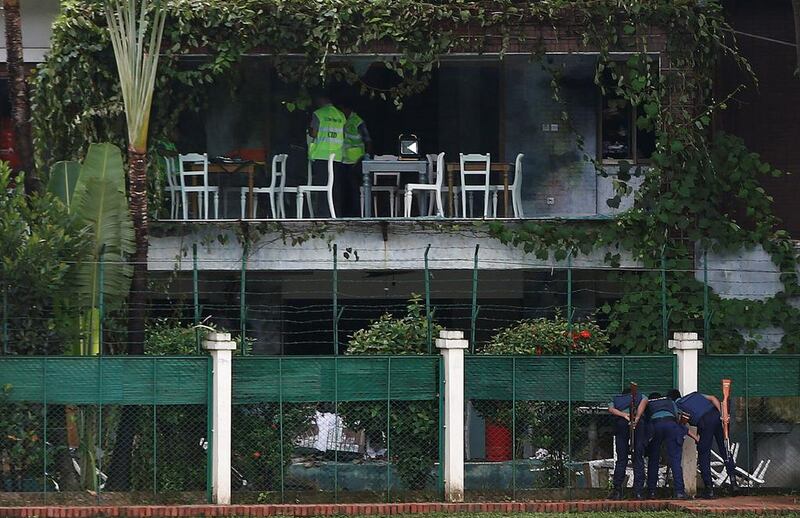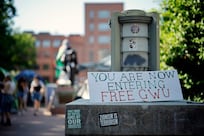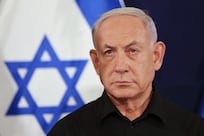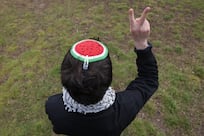Bangladesh, long accustomed to being neglected by the world, is suddenly under a harsh international spotlight. The reason for this is the recent terrorist assault on an upscale bakery in one of the most fashionable neighbourhoods of the country’s capital.
On the evening of July 1, the Holey Artisan Bakery in Dhaka’s diplomatic zone was besieged by half a dozen militants who, after a short speech on the perilous state of Islam, separated the non-Muslim diners and butchered them. The world may not have noticed this atrocity had it not been for two facts. First, most those murdered were not Bangladeshi: among the victims were Italians and Japanese, an Indian and an American. Second, the killers transmitted live images of the massacre. Using the restaurant’s Wi-Fi network, they published the images on social media accounts affiliated with ISIL.
Scarcely had Dhaka come to grips with the horror than a succession of experts, ensconced in western think tanks and responding to the demands of instant punditry, began advancing the hysterical claim that Bangladesh – home to 160 million people – was the newest staging ground for ISIL warriors.
Some argued that the secular government of prime minister Sheikh Hasina, in denial about the depth of radicalisation in her country, wasn’t doing enough to crack down on militancy. Others declared that the militancy had, in fact, been caused by excessive repression by the Hasina government.
The one point of consensus seemed to be the one least supported by evidence: that Bangladesh was slipping into the grip of ISIL. This contention seems even less persuasive a month later than it did on the night of the attack.
Bangladeshi authorities, aided in their investigations by Indian counterterrorism operatives, have not found any operational nexus between ISIL and local militants. The young men who stormed the restaurant, far from being driven to terror by the exhortations of Abu Bakr Al Baghdadi, appear partly to have been self-radicalised. ISIL was, at best, the syndicate to which they turned to distribute the evidence of their “martyrdom” – and which gladly subsumed their savagery under its banner.
To buy into ISIL’s boasts of its global reach is to become complicit in its own propaganda – while absolving the native purveyors of extremist ideologies of their responsibility for the turmoil in Bangladesh.
Some of the most revered members of the Bangladeshi opposition collaborated with Pakistan’s military dictatorship as it went about suppressing the Bangladeshi freedom movement in 1971. Thirteen battalions of mostly Bengali Islamists assisted the Pakistan army in carrying out some of the worst crimes ever committed against a predominantly Muslim population. After independence, when East Pakistan established itself as Bangladesh, the new state gave itself a secular constitution.
Sheikh Mujibur Rahman, the father of the new nation, was fierce in the beginning. An act of parliament was passed in 1973 to set up a tribunal with jurisdiction to punish the perpetrators of the genocide. Two years later, Mujibur, along with almost every member of his family, was assassinated in a coup. Ms Hasina, who was then living in Germany, survived. She was barred from entering the country.
Gen Ziaur Rahman, who took over the country in 1977, scrapped the inclusive elements of the constitution. When Rahman was assassinated in 1981, his widow, Khaleda Zia, took charge of his Bangladesh Nationalist Party. Islamists who a decade previously had slaughtered their compatriots in service of the Pakistan army became active once again in Bangladeshi politics.
There are no innocents in Bangladeshi politics and every politician is tainted by accusations of corruption. Yet Ms Hasina, for the sheer resolve with which she combated religious extremism, must rank among the most formidable women in recent history. At a time when Pakistan’s Benazir Bhutto was aiding the Taliban’s rise in Afghanistan, Ms Hasina was taking on Islamists cut from the same ideological cloth as the Taliban. She overcame exile, survived assassination attempts and rebuilt the Awami League. Her party, the secular alternative in Bangladesh, has provided a modicum of protection to religious minorities.
In 2010, Ms Hasina revived the war crimes tribunal her father had instituted. Extraordinary pressure was brought to bear on Dhaka to spare the men who had abetted the Pakistani military’s massacres. But this was Bangladesh’s moment. Hundreds of thousands of young men and women poured into the streets of Dhaka to demand harsher punishments than the tribunal awarded.
Ms Hasina refused to transfer power to a caretaker administration in the run up to the general elections in 2014, defying a convention she had pledged to honour. This was a grievous mistake, and it did profound damage to her reputation and undermined the important work she had done in office. Dozens of people were hacked to death as the opposition, having sworn to boycott the vote, dispatched its militias on election day to stop people from exercising their franchise.
Bangladesh became so deeply mired in violence – and so lethal for its religious minorities – that a return to normality seemed close to impossible. But Ms Hasina, easily re-elected in the absence of an opposition, clamped down hard on the extremists.
The seemingly permanent siege has ended. But, since then, Bangladesh has witnessed periodic attacks on freethinkers, rationalists, bloggers, secularists, religious minorities – anyone deemed insufficiently pure. These attacks are the violent spasms of an order that is progressively being choked off.
There is certainly evidence of ISIL seeking to scoop up disaffected young Bangladeshis. But its gains have been vastly exaggerated. What has been overlooked is the fact that Bangladesh’s existing corps of extremists are turning to the potent brand of ISIL to gain greater exposure and notoriety for their deeds – and, as the attention conferred on them by the Dhaka attack shows, it is already working. The shrewd response is not to amplify their self-aggrandising claims – but to recognise that their occasional successes cannot avert their eventual extinction.
Kapil Komireddi, an Indian journalist, has written from South Asia, Eastern Europe and the Middle East
On Twitter: @kapskom





